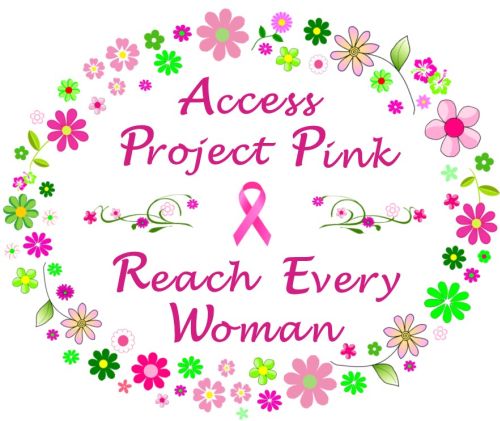
Picture of an ad that says Access Project Pink Reach Every Woman
Project Pink/ Reach Every Woman
What is Project Pink/ Reach Every Woman?
Bradley County Medical Center is a proud participant in the Greater Delta Alliance for Health's (GDAH) Access Project Pink /Reach Every Woman program. This program is dedicated to providing direct breast health services and education to the uninsured and underinsured population of Southeast and Central Arkansas by assisting women (and men) of all ages to easy access to free breast screening services. This program is funded with assistance from the Susan G. Komen Foundation - Arkansas Affiliate.
What Services are Provided?
The following services will be provided at Bradley County Medical Center and other participating hospitals in Southeast Arkansas (see location service map)
Free breast screening services including clinical breast exams,screening mammograms, diagnostic mammograms and ultrasounds at local hospitals for convenient access. *Biopsy assistance is also available.
Breast health education, training and awareness through educational materials and assistance in the service areas.
A toll-free number for assisting patients with navigation for all screening services. Please call (855) 390-9195.
Free "Breast Self Exam" (BSE) pocket guides will be available for nurses
and healthcare providers for interactive education with patients.
Free "Patient Education" shower cards on how to perform BSE's at home
will be available at health fairs and other events.
"Access Project Pink / Reach Every Woman" posters for all exam rooms in
participating hospitals and clinics as a reminder to health care professionals and
their patients of services available.
How the Access Project Pink /Reach Every Woman program works...
1) You or your physician call the Project Director or our toll-free number to access the program.
2) After checking to see if you qualify for the program and your healthcare provider has submitted orders, the Project Director will forward your information to the hospital of your choice within the service area.
3) You will receive either a phone call or letter from the hospital to set up your appointment.
4) Arrive at the appointed time and be examined. Your results will be sent to you by your physician or healthcare provider.
What Every Woman Should Know...
Between the ages of 20-39, every woman should have a clinical breast exam every three years.
Starting at age 40,she should be examined every year.+
Although not all breast cancers are found through mammography, most women in the United States are diagnosed at an early stage of breast cancer,before symptoms appear, as a result of a mammogram.
The most common symptoms of breast cancer are a change in the look or feel of the breast, the nipple or a nipple discharge.
+ American Cancer Society breast screening recommendations.
GDAH 2015 Project Pink Update
CLICK HERE for the GDAH 2015 program review (see page 9).
Contact Information
For information on scheduling a free mammogram and all additional program services, please contact:
Wendy Talbot, Project Director
(870) 541-7661
Fax: (870) 541-8668
Toll-free: 1-855-390-9195
Email: talbotw@jrmc.org
To contact BCMC's Radiology Department:
(870) 226-4393
All funds are the result of the annual Susan G. Komen Race for the Cure in Little Rock.For more information visit GDAH.



